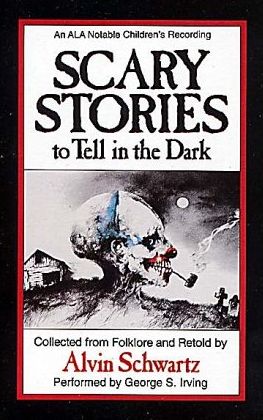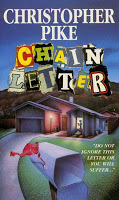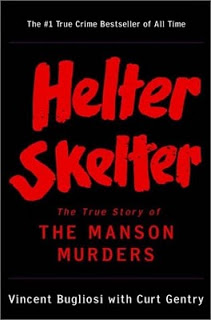Author: Jon Krakauer
Publisher: Doubleday
Publication Date: April 21, 2015
Source: borrowed from the good ol' public library
Summary from Goodreads:
Missoula, Montana, is a typical college town, with a highly regarded state university, bucolic surroundings, a lively social scene, and an excellent football team — the Grizzlies — with a rabid fan base.
The Department of Justice investigated 350 sexual assaults reported to the Missoula police between January 2008 and May 2012. Few of these assaults were properly handled by either the university or local authorities. In this, Missoula is also typical.
A DOJ report released in December of 2014 estimates 110,000 women between the ages of eighteen and twenty-four are raped each year. Krakauer’s devastating narrative of what happened in Missoula makes clear why rape is so prevalent on American campuses, and why rape victims are so reluctant to report assault.
In Missoula , Krakauer chronicles the searing experiences of several women in Missoula — the nights when they were raped; their fear and self-doubt in the aftermath; the way they were treated by the police, prosecutors, defense attorneys; the public vilification and private anguish; their bravery in pushing forward and what it cost them.
Some of them went to the police. Some declined to go to the police, or to press charges, but sought redress from the university, which has its own, noncriminal judicial process when a student is accused of rape. In two cases the police agreed to press charges and the district attorney agreed to prosecute. One case led to a conviction; one to an acquittal. Those women courageous enough to press charges or to speak publicly about their experiences were attacked in the media, on Grizzly football fan sites, and/or to their faces. The university expelled three of the accused rapists, but one was reinstated by state officials in a secret proceeding. One district attorney testified for an alleged rapist at his university hearing. She later left the prosecutor’s office and successfully defended the Grizzlies’ star quarterback in his rape trial. The horror of being raped, in each woman’s case, was magnified by the mechanics of the justice system and the reaction of the community.
Krakauer’s dispassionate, carefully documented account of what these women endured cuts through the abstract ideological debate about campus rape. College-age women are not raped because they are promiscuous, or drunk, or send mixed signals, or feel guilty about casual sex, or seek attention. They are the victims of a terrible crime and deserving of compassion from society and fairness from a justice system that is clearly broken.
My Review:
If reading this book doesn't make you angry, you're reading it wrong.
I don't normally include such a long description before my reviews (and I even abridged this one from the full text on Goodreads' site), but I think it's important for readers to understand the full scope of what Krakauer has undertaken in this book.
The basic premise of Missoula, and the statistics it presents regarding the frequency of sexual assault (especially on college campuses), did not surprise me. I took a class on Family Violence in my last year at UConn (with an outstanding professor who really gave the topic the weight it deserved), and while I obviously had heard of rape and sexual assault before that, the course was my eye-opening experience into the world of rape victims and their attackers. At the same time that I was taking the course, I was also a Resident Assistant in my dorm, and I had two different residents come to me during that semester to report that they had been sexually assaulted. It was enough to make my head spin. Suddenly, the fact that we lived on campus with a path jokingly named "the Rape Trail" (real thing in Storrs, any alumni will tell you), a bar fondly nicknamed "Slutskies", a rumor mill rife with stories about the sexual exploits of various student-athletes/fraternities/etc...it didn't seem so humorous anymore. Just because I was fortunate enough to not become a victim of these crimes didn't mean that it wasn't going on all around me--often under my nose, as sexual assault is one of the most underreported crimes.
This experience was brought back to the forefront of my consciousness in Missoula. Krakauer admits at the end of the book that he was largely ignorant of the problems surrounding sexual assault (the act itself, as well as the way it is handled by the justice system/media/etc), especially for college-age women, before discovering that a close family friend had been a victim of it not once, but twice. This compelled him to begin researching the subject more thoroughly, and we all know what happens when Jon Krakauer researches something more thoroughly.
The mishandling of sexual assault cases in Missoula and on the University of Montana came into the spotlight in 2012, when several women came forward to report that they had been raped by UM football players. As these cases were being investigated, it quickly became evident that there was a larger problem at hand in Missoula, one that extended well off campus. Krakauer was able to interview many of the victims of these high-profile cases, as well as their families and friends, and even one of the assailants.
Krakauer highlights two legal cases in particular: those of Beau Donaldson and Jordan Johnson, both members of the UM football team. One of them was found guilty, and the other was acquitted, of sexual assault against fellow UM students. Krakauer's research breaks down the differences in how these cases were handled, bringing to light many of the biases and problems that the victims had to face in their attempts to find justice.
I had to read this book in bursts, because I was so often angered by what I read. The actual acts of sexual assault were very difficult to read (definite trigger warning here), though I expected that going in. What I didn't expect was the anger I would feel in regards to how each case was mishandled, as the police and prosecutors often overlooked important evidence, dismissed victims' statements and concerns, and provided incompetent counsel on legal issues.
While Krakauer's outrage at the rapes themselves is obvious, this book is most impressive in how it illustrates the problems of how the justice system handles sexual assault cases. The issues begin from the moment a rape is reported--in how the police question victims and make them feel safe (or not). The problems snowball from there, all the way to the courtroom (if the case even makes it there--it often does not), where victims are made to relive their experiences by vicious defense lawyers who will do anything to make the victims look untrustworthy and promiscuous.
While I expected Krakauer to take particular issue with Jordan Johnson's case (as he was acquitted of rape), I was compelled by the fact that his book does not attack the verdict itself, but rather the way in which it was reached. Krakauer does not attempt to play judge-and-jury, suggesting that Johnson should be in jail. What he does do is dismantle the appalling tactics used by the defense throughout the trial, as well as the many problems with how the prosecution moved forward with the victim's case. The only people who know if Johnson is truly innocent are Johnson and his accuser, but either way, the victim's case was not given fair showing that it deserved.
If you're a fan of Jon Krakauer and/or solid investigative nonfiction, you must read Missoula. Sexual assault--both the act itself, and the way it is approached in the justice system--is a problem that extends well beyond Missoula and the University of Montana. Read this, get angry, and get informed. This is likely one of Krakauer's most controversial books (I hear he's not so welcome in Missoula anymore), but also one of the most significant.
What was the last nonfiction book you read that opened your eyes to a particularly distressing or provocative topic?
















